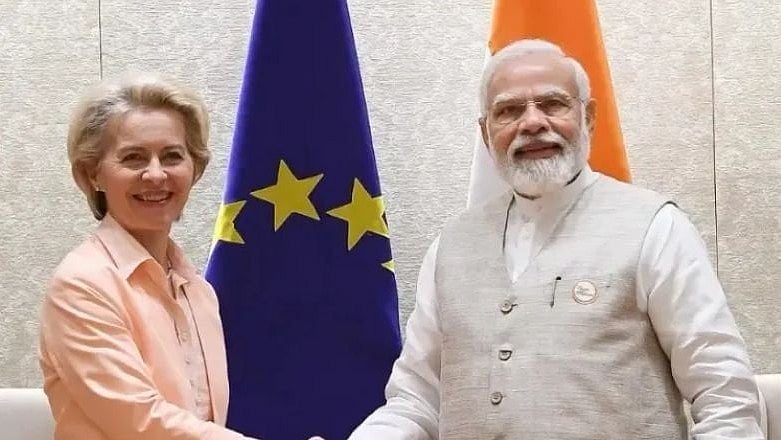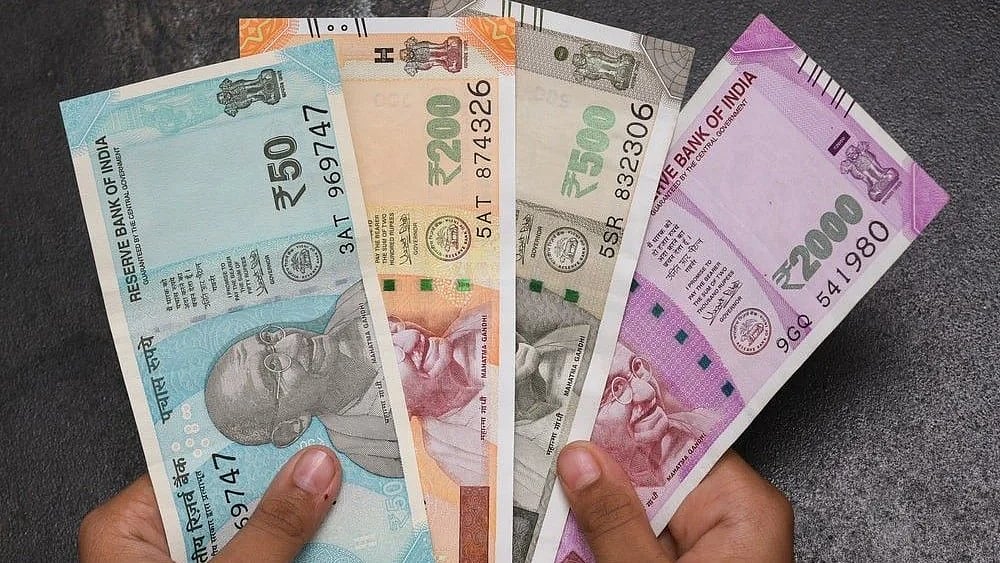BANGLADESH feels the constant need to distinguish itself from Indian West Bengal and assert its independent identity. The urge is best illustrated by the substitution of the traditional Bengali by the new-fangled adjective “Bangladeshi.”
Every so often some development in Bangladesh reminds us of the late Zulfiqar Ali Bhutto’s warning on the eve of the 1971 liberation war that “Muslim Bangla” (as he called erstwhile East Pakistan) would have to choose between being Muslim or Bengali. Either it’s the role of Islam as the state religion or whether Amar Sonar Bangla should be replaced by Prothom Bangladesh as the national anthem. Now, it’s school syllabuses.
Reports indicate that a number of poems by Rabindranath Tagore, short stories by Sarat Chandra Chatterjee and other writings by Upendrakishore Ray Chowdhury (Satyajit Ray’s father) and others have been dropped from school syllabuses either because they invoke Hindu images or refer to some aspect of India. This revision recalls East Pakistan banning Tagore’s songs – Rabindrasangeet – from radio programmes until the founder of Bangladesh, Sheikh Mujibur Rahman, led a popular campaign against the order. The textbook changes prompted a leading English-language newspaper in Dhaka, the Daily Star, which is known for its secular commitment, to lament that “young minds are increasingly becoming laboratories for fundamentalists and extremists propagating their views and ideologies.”
We also have Mohammad Salim, the CPI(M) parliamentarian from West Bengal, complaining that liberals are persecuted in Bangladesh. The selective killing of liberal or secular bloggers certainly appeared to bear out the charge. But it must be emphasised that this is a social and criminal problem, for which the government of Mujib’s daughter, Sheikh Hasina Wazed, cannot be held responsible.
Many Bangladeshis are uneasy with their Bengali Muslim (or Muslim Bengali) heritage as much because of past history as because of the suggestion of divided loyalty. Apart from Muslim League propaganda, a major reason for partition in 1947 was the economic imbalance. East Bengal’s peasant cultivators were mainly Muslim whereas the landowners (and professional classes) were Hindu, the former often absentee landlords living in Calcutta. Zamindari abolition was probably the East Pakistan legislature’s first enactment. In contrast, West Bengal did not abolish zamindari till the 1950s. Secondly, apart from a few landowners who claimed Arab or Persian descent, East Bengal didn’t have a Muslim middle or upper class. So the model for success was primarily Hindu and attention was focused on Calcutta, the metropolitan hub of the entire province. Even in the late 1960s, East Pakistanis would say Dhaka’s best hotel, the Shahbagh, was like the Grand in Calcutta, and that Dhaka Club was as good as the Calcutta Club.
Given this complex, a rejectionist mentality was only to be expected. Religion fuelled awareness of the difference. Young Hindus who fought in the Mukti Bahini maintained that the Hindu-Muslim divide had been successfully bridged, and the future belonged to Bangladeshis irrespective of religion. Their idealism accounted for secularism being elevated as one of the four fundamental principles of Bangladesh’s original 1972 constitution. Ziaur Rahman removed this principle in 1977 when he became ruler following Mujib’s murder and replaced it with a statement of “absolute trust and faith in Almighty Allah”. General Ghulam Mohammed Ershad who took over when Zia in turn was assassinated declared Islam the state religion in 1988. In 2008, Mrs Wazed’s newly elected Awami League government announced it would re-introduce the original four state principles into the constitution’s preamble. Two years later the Bangladesh Supreme Court restored secularism as one of the basic tenets of the constitution.
Another section of the Bangladesh constitution states that the principle of secularism can only be realised by eliminating four factors — communalism in all forms; granting by the state of political status in favour of any religion; the abuse of religion for political purposes; and finally, any discrimination against, or persecution of, persons practising a particular religion. This seems utopian in a country where, for political reasons, Mrs Wazed hasn’t yet dared to demote Islam.
One might as well argue in the face of the return of murderous anti-Dalit violence to a Haryana village in the outskirts of Hisar town that caste has ceased to exist in India because the constitution outlawed it in 1950. Religion (like caste) is identity. Moreover, it’s an identity that has flourished for centuries in India in contradiction to the majority religion. So, even if Pakistan and Bangladesh are no longer India, the sentiments that prompted them to secede continue to animate minds. Instead of being the oppressor at home, the Hindu has been transformed into the enemy abroad. Pakistanis and Bangladeshis both usually prefer to refer to India as “Bharat” or “Hindusthan”.
More than 90 per cent of Bangladeshis are Muslims. The rest are Hindus, Buddhists or Christians. Such is folk culture that Bangladeshis celebrate various secular festivals throughout the year. South Asian secularism is in many ways different from Western versions that assert a complete separation of church and state harking back to the Biblical injunction of rendering unto Caesar what is Caesar’s and to God what is God’s. Secularism in South Asia means that while the individual is free to practise whatever faith he chooses, the state does not adhere to any particular religion. A national triumph in Britain may lead to a Christian service of thanksgiving in Westminster Abbey or St Paul’s Cathedral; the author of India’s secularism, Jawaharlal Nehru, disapproved of the president, Dr Rajendra Prasad, attending the ceremonial inauguration of the reconstructed Somnath Temple.
Things may change in India now but there has been no formal dilution of the official commitment to secularism. Against this, Bangladeshis must be somewhat bewildered by the different positions taken by different national leaders and the many changes in their constitution. Many Bangladeshis of position regarded the removal of secularism from the constitution as a betrayal of Bengali nationalism. Similarly, some at least viewed the downplaying of Islam as a betrayal of the country’s religion. On the while, Bangladeshi culture and society are both pluralist and progressive although the army, which produced both Zia and Gen Ershad, enjoys a close ideological association with centre-right and conservative political parties and argue that the term “Bangladeshi nationalism” refers to the country as a Muslim-majority nation. Zia’s Bangladesh Nationalist Party and General Ershad’s Jatiyo Party reflected this creed.
The United Nations has called Bangladesh a “moderate Muslim democracy”. But the erudite Dr Dipu Moni, who was Bangladesh’s foreign minister from 2009 to 2013, retorts that Bangladesh is “a secular, not moderate Muslim, country”. Some might argue that the two are not contradictory. Others would point out that the latest revised school syllabus appears to concede the demands of a Muslim group called Hefazet-e-Islam. The truth of the matter is that Bangladesh feels the constant need to distinguish itself from Indian West Bengal and assert its independent identity. The urge is best illustrated by the substitution of the traditional Bengali by the new-fangled adjective “Bangladeshi.”
The writer is the author of several books and a regular media columnist




